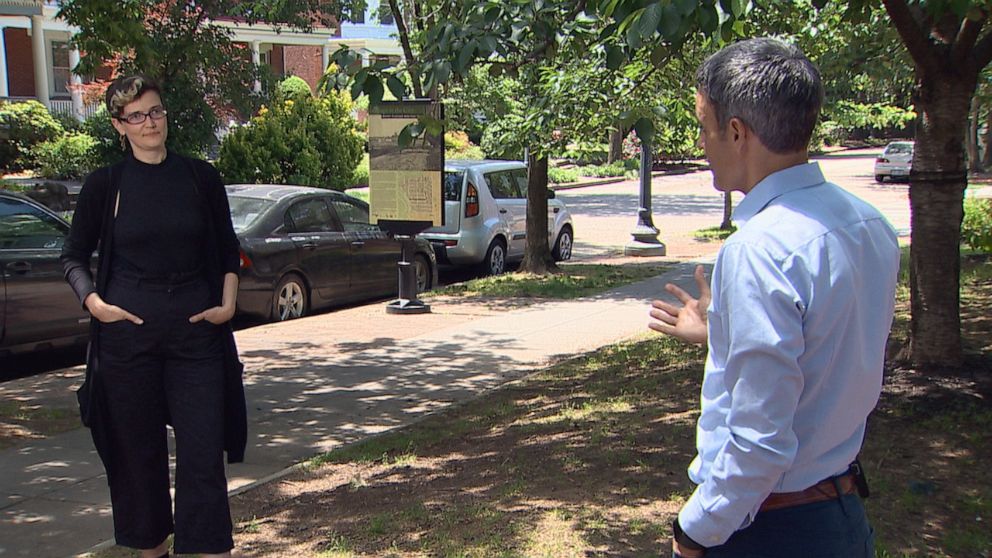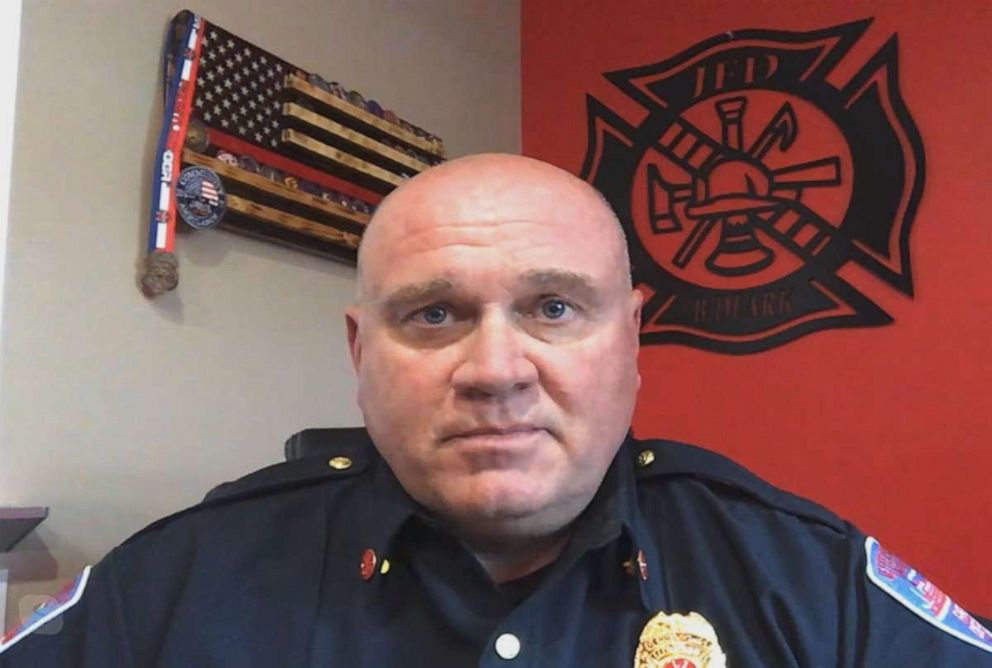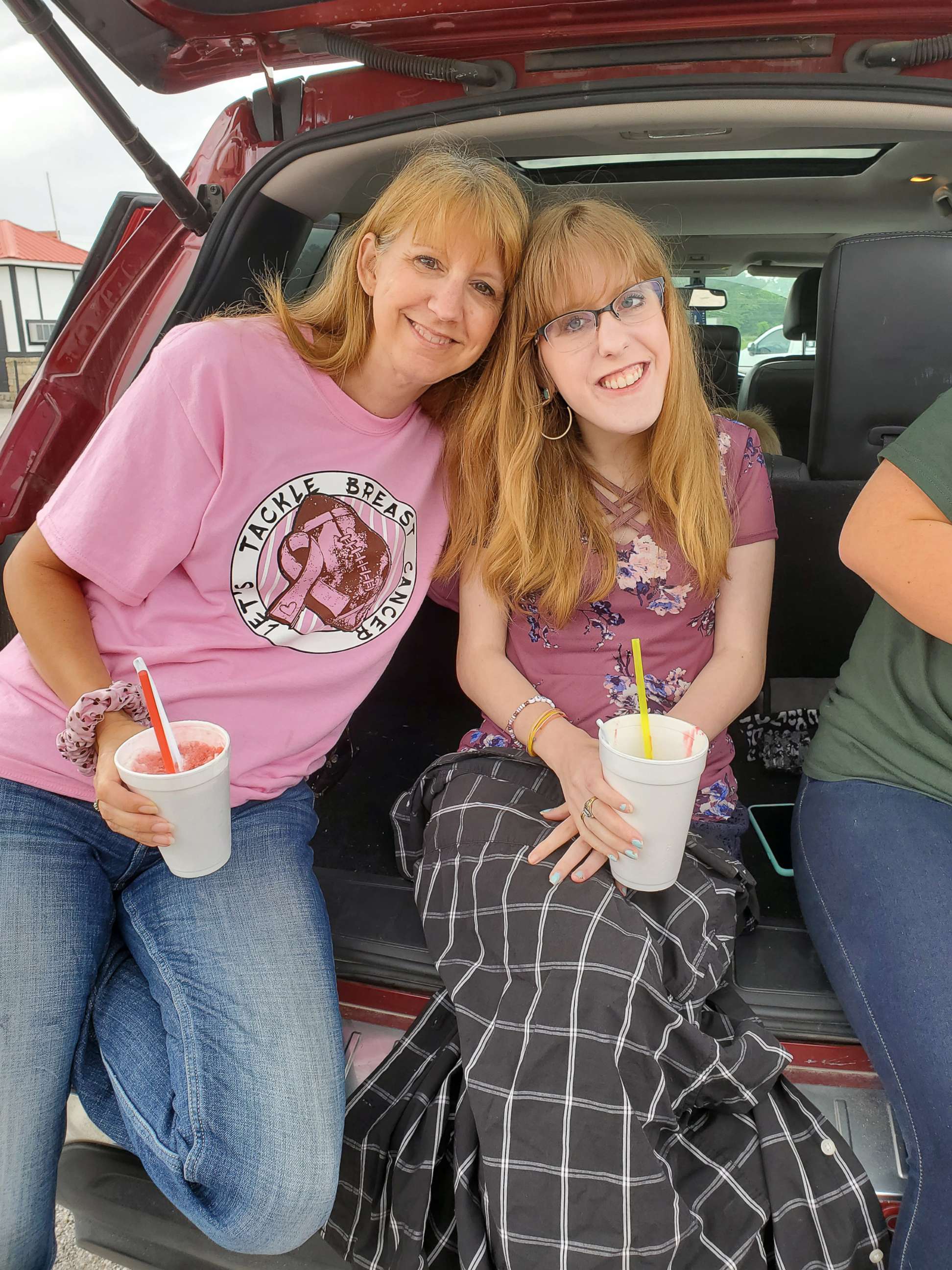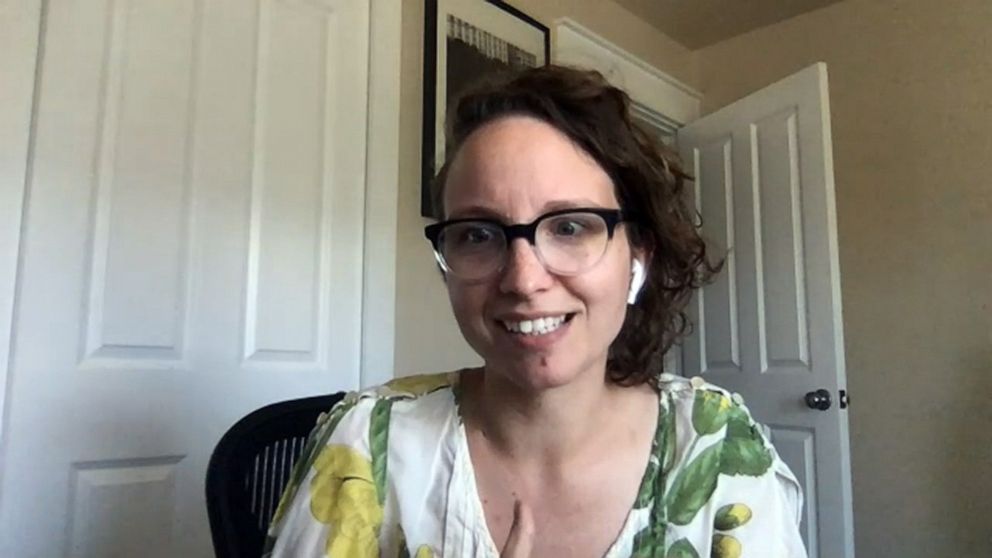Battling cancer and COVID-19: Patients and survivors worry about lost time
Cancer patients share their daily acts of courage amid the coronavirus pandemic.
For Meredith Minister, this was supposed to be a summer of living it up and dancing away fears of late-stage metastatic cancer.
"I am in a place with cancer where I am just trying to make decisions to live my life as long as it lasts, and not trying to lengthen my life by decreasing its quality," said Minister, 36, a religious studies professor and amateur dance enthusiast, who is no longer receiving treatment for her disease.
"The way that I could exchange energy with other people on the dance floor -- those are not things that you can approximate virtually," she said.

Many of the 15 million Americans living with cancer are coming to terms with a pandemic that has upended support systems and coping mechanisms, facing difficult choices about how to live fully in the era of social distance.
For some, deferred care and missed diagnoses during the nationwide public health lockdowns have also added up to precious lost time and deep anxiety over the future.
That's on top of worry about the coronavirus itself.
"I'm obsessed with thinking about the coronavirus. I'm obsessed with, 'Am I going to get it? Is my family exposed? Are we doing things that stay safe?'" said Kacie Peters, 33, of Denver, who was diagnosed with stage 3 colon cancer earlier this year and recently completed chemotherapy.
"It's frustrating that a lot of folks are jogging and strolling without masks. There are plenty with them. But, it's a really weird feeling that people are dangerous," she said of her community as it begins to reopen.
Cancer patients, especially those actively undergoing treatment, have compromised immune systems that make them more susceptible to infection. Some say their disease has prepared them for the daily precautions that have become more widely adopted during the outbreak.
"We kind of live in a pandemic daily," said Bruce DeArk, a deputy fire chief in Jeffersonville, Indiana, battling stage 4 colon cancer. "Truthfully, if your immune system's compromised every day, you should have a mask on or you shouldn't go to stores where there are lots of people. But, this is the unseen enemy that you can't see. So it's kind of -- kind of scary."
Fear of the novel coronavirus has given way to an emotional dilemma, some cancer patients say: Get treatment and risk contracting COVID-19 at the hospital or stay home and wonder about lost time.

DeArk decided to postpone a spring trip to a top cancer clinic in Texas in light of the risk. In April, Peters made the difficult call to put off her next course of chemotherapy because Colorado was seeing a surge in coronavirus cases.
"If in five or 10 years, I have a resurgence of cancer, maybe it was because I didn't do that chemo," Peters said.
Breast cancer survivor Dawn Buckner of Adair, Oklahoma, said she's feared most for her children -- a son with asthma and daughter with cerebral palsy. Last month, just weeks before her final breast surgery, she got hit with COVID-19 herself.
"I called my husband. I was bawling, and I'm like, 'You've got to get, you know, my son, out of the bedroom,'" she said. "You see the worst of it on TV and you think, 'Oh my gosh, am I gonna stop breathing here in a minute?' So, I was pretty frantic the first day."
Buckner was forced to isolate herself at home, leaving her husband to run their small business and care for both kids. She prayed her fragile immune system would handle the disease.
"I have cancer, but I can tell you right now a whole list of people I know that that are worse off, whether it's cerebral palsy, whether it's cancer. There is always -- always -- somebody worse off than what you are," Buckner said of her outlook.

There is also the fear of dying alone, some cancer patients said, as hospitals limit bedside visits during the outbreak.
"That's terrifying to me because that's not how I want to die," said Minister. "It's a very real fear. And you plan for it the best that you can. There's not a solution."
Nearly 2 million Americans will be newly diagnosed with cancer this year, according to the National Cancer Institute. Over the last three decades, the annual number of cancer diagnoses and deaths have been steadily on the decline. But experts say the pandemic could turn those trends around.
"Screening and prevention and treatment are the pillars of medical care, and when you prolong that time, regardless of the chronic disease you're talking about, the worse the outcomes are going to be," said John Brownstein, an epidemiologist at Boston Children's Hospital and ABC News medical contributor.
"I'm getting very worried," Dr. Ned Sharpless, director of the National Cancer Institute, told the agency's board during remarks this month. "Because of the pandemic, in 2021 or 2022 or 2023, we will have (the first report) since 1993 that shows an increase in cancer mortality. And I know exactly what the statistics will mean for patients: That represents more cancer suffering."
The scientific community also fears what a report in next month's The Lancet Haematology journal describes as the pandemic's "serious and disruptive effect" on clinical trials for cancer treatments and potential cures.
"The apparatus of research, other than computer-based analyses, has really come to a grinding halt in most parts of this country," said Brownstein. "So if you think about medical research as an engine that helps us develop therapeutics, then you have a gap in the pipeline."
Tune into ABC at 1 p.m. ET and ABC News Live at 4 p.m. ET every weekday for special coverage of the novel coronavirus with the full ABC News team, including the latest news, context and analysis.
For many cancer patients, the focus now is less on the future and more on the present.
"It's a mental challenge," said DeArk. "I've never been what you want to call scared. I've been more or less anxious, because I've taken this head-on since day one. This is not going to beat me. It's not going to define me."

Peters said the quarantine experience is an opportunity for reflection.
"It's those little victories of every day of just saying like, 'Hey, I didn't die today.' And, 'hey, the world still exists outside my window,'" she said.
Buckner, battling the coronavirus and breast cancer, said the double whammy of diseases requires daily acts of courage. Last week, she drove two hours by herself to get re-tested for the "all-clear."
This week she's celebrating her results: negative for COVID-19 and moving forward with one last planned surgery next month.
"We are thinking about how we want to live, and how we want to live better, and how we want to live with others better, which I think the pandemic, even more than cancer, is inviting us to think about right now," said Minister.
ABC News' Neil Giardino, Ignacio Torres, and Jackie Yoo contributed to this report.
What to know about the coronavirus:
- How it started and how to protect yourself: Coronavirus explained
- What to do if you have symptoms: Coronavirus symptoms
- Tracking the spread in the U.S. and worldwide: Coronavirus map




